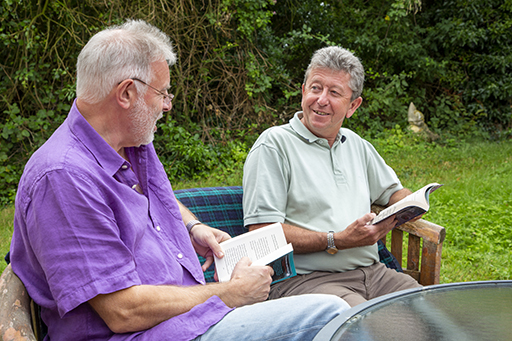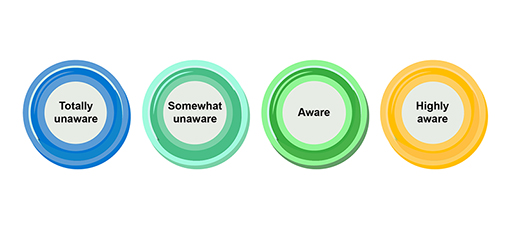6 Developing as a Reading Teacher
In the final sections of this session, you will reflect on what on you have studied so far in this course by reviewing some of the core principles of Reading for Pleasure, and looking in more detail at what it is to be a Reading Teacher – a term you first came across in Session 6.

Research by Cremin et al. (2014) indicates that Reading Teachers have a good understanding of what it is to be a reader in the 21st century, have a rich subject knowledge, and know their children as readers. Crucially, as Cremin (2019, 2021) also showed, Reading Teachers have a good understanding of themselves as readers. By looking inward and reflecting on your own reader identity, you will be able to nurture children’s emerging reader identities and will be able to support them to become engaged readers.
Personal reflection 2
Use the scale below to reflect on how your awareness of your own reading practices and reader identity has developed as you have progressed through the course.
Before studying this course, how aware were you of your own reading habits and reader identity?
After engaging with this course, how aware are you?
Do you feel that your awareness of your own reading practices and of being a reader can help you as a teacher make children’s reading experiences more authentic and engaging ? If so in what ways?
Comment
Reading is something we all do every day; we all have a reader identity. However, this identity is something that we don’t tend to think about until our attention is drawn to it and it is something that will shift and change in different contexts. Regardless of your awareness prior to the course, it is likely that you now have a better understanding of yourself as a reader and a Reading Teacher.
Through reflecting on your journey as a reader, you will appreciate that the nature of reading continually evolves. In part, this is due to advances in technology, particularly digital technology, yet the ways in which people engage with reading has always adapted and changed. At one point in time, the printing press was new technology that revolutionised the way people read. Today, reading on screens has become the norm, information is at our fingertips, and we all encounter a wide range of printed materials in our daily lives.
However, some things about reading remain constant – it has always been an affective process, people have always engaged more deeply with subject matter that resonates with them personally, have always had a desire to connect with others and have always had a quest for knowledge. For millennia, humans have made sense of the world through narrative. Stories have played, and continue to play, a powerful and transformative role in the lives of individuals and of societies.

